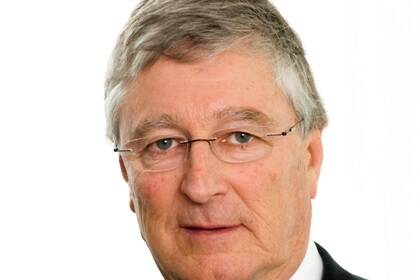
Western Australian Merino sheep producer and businessman, David Webster, says if mulesing was outlawed right now there would be no Merino wool industry.
The long-serving director of Australian Wool Innovation is seeking another term on the board.
He is one of eight candidates seeking to fill three vacancies on the AWI board at the company's annual general meeting on November 22 in Sydney.
We have sent them a lists of 10 questions to provide shareholders with an insight into their priorities if elected to the AWI board.
On the controversial subject of ending surgical mulesing, Mr Webster said there could be no ban until a viable alternative was available.
And he isn't worried about the wool industry's heavy dependence on he Chinese market. He said China had driven much higher returns for Australian growers.
Question: If elected, what would be your major priorities as a director of AWI?
Answer: Retaining stability in all areas of the company is critical given the challenges in both global trade issues and the extreme drought conditions now being endured by growers.
Q: Do you think AWI has now got the balance right between marketing and research?
A: The 60/40 spend has worked giving balanced outcomes. The right marketing choices have given a return to boost revenue for both marketing and R&D. Simple equation: make money to spend money.
Q: What do you think should be AWI's main research targets?
A: Sustainability across all areas has to be the priority and there are many facets of the industry to which this applies. Great care should be taken that decisions by the board are not counter-productive in one area of sustainability versus another.
Q: How do you rate the AWI's current promotion and marketing strategy and what, if anything, would you do differently?
A: Very little differently. The current strategy has served the industry particularly well over the last decade in an era of global economic predictability.
Current economic circumstances will require AWI to be particularly sensitive to future market movements.
Proposed tariffs which apply economic sanction may well distort the geographic location of end use by consumers.
As a rule of our investment strategy in marketing, AWI adheres to a minimum investment ratio of 4 to 1, that is $4 from the partner to AWI's $1.
Depending on the project some partners contribute at a much higher ratio than 4 to 1, 10 to 1 is not uncommon.
Q: Do you think the AWI is now transparent enough with its levy payers?
A: Yes. Levy payers can access the information as they require which has always been the case. The annual report lists all the major projects currently active in AWI.
Senior staff and the chairman are contactable by levy payers upon reasonable request .
Q: The Merino flock has declined dramatically in size (thanks, in large part, to drought). What should be the AWI be doing to rebuild it?
A: Cost will determine the ability of growers to restock and rebuild their flocks.
Information from AWI will be available through the website on various feed regimes and management options and information on dealing with many issues.
The ravages of drought are known to us all, the answer to the problems will invariably be financial.
Issues other than financial should be reviewed regularly, unfortunately AWI has no capacity to contribute financially.
Q: How important do you think it is to end surgical mulesing in the industry?
A: To end surgical mulesing is not an option without the advent of a viable alternative.
AWI will continue to pursue project proposals as well as current projects with a strong commitment to finding solutions too or in part to solving this problem.
For the great majority of growers, mulesing is their choice of best practice for sheep health, hygiene and flock welfare.
Put simply, no mulesing would mean no industry and no wool as there will be easier choices for land use.
Q: The AWI is often portrayed negatively in the media. What do you think needs to happen to change that or is the company the victim of the "usual suspects" out to stir up trouble?
A: The negativity has been a constant for many years even prior to the creation of AWI.
The "usual suspects" have presented a minority view throughout history .
The "quiet Australian woolgrowers" usually don't express themselves .
Q: Does the Australian wool industry's heavy dependence on the Chinese market worry you?
A: No. Reality is we have to deal with China being our largest customer. They have driven very high returns to growers firstly with processing demand and more recently with consumer demand, now at around 54 per cent of Australian wool production and consumed largely in the high-value fashion apparel market.
This has come off the back of extensive awareness programs for Merino as distinct from wool awareness. There is evidence that "Merino" resonates in the Chinese apparel market rather than "wool".
Management identified market points in the Western Hemisphere to apply pressure to the Chinese markets, New York in particular.
The US has been taking 13-14pc of high-end product as a result. This has become our highest consumption historically on the American continent, a graphic example of successful marketing.
READ ABOUT THE OTHER CANDIDATES:
- AWI must increase its focus on wool and sheep research says Hocking Edwards
- AWI must stop embarrassing growers says Phil Holmes
- AWI's culture is broken and needs fixing says Paul Cocking
- George Falkiner says its time to rebuild the flock, end mulesing and beat blowflies
- Don't take your eye off the need for wool marketing says Merriman


